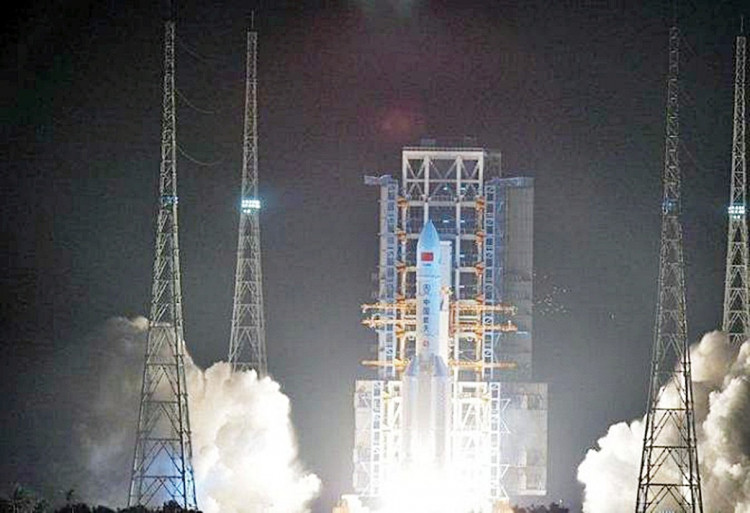The China National Space Administration (CNSA) has announced its Tianwen-1 Mars orbiter and rover should enter the Red Planet's orbit on Feb. 10.
The probe, which has been traveling for 163 days since its launch in July, is about 130 million kilometers from Earth, CNSA said in a Sunday night statement. The distance covered was more than 400 million km after a sequence of orbital maneuvers had been carried out as it moved away from the Earth's orbit and approached the Red Planet.
So far, according to the Space Agency, Tianwen-1 has carried out three orbital corrections as well as equipment checks. The probe remained in good condition as it continued on its trip to Mars - still 8.3 million km away.
Li Zhencai, deputy commander of the Tianwen-1 Mars probe project, told Chinese media that preparations for entering Mars orbit are underway.
"We plan to complete all the commands and the joint exercise with the Beijing Aerospace Control Center before Jan. 24," Li said in a CCTV interview.
If it successfully reaches the orbit of the Red Planet next month as planned, it will be 190 million kilometers from Earth and will have traveled more than 500 million kilometers to get there.
Tianwen-1 is set to land on Mars in May and will deploy a scientific exploration rover that is scheduled to work for about 90 Martian days, significantly longer than its Earth equivalent.
After entering orbit, Tianwen-1 will begin to prepare for a mission rover landing attempt. The orbiter will begin imaging the key candidate landing site in the massive Utopia Planitia impact basin, south of NASA's Viking 2 landing site.
Getting ready for the attempt will take time, though, with CNSA reporting that the landing will not take place until May.
If the Tianwen-1 solar-powered rover will adhere to the landing, the surface soil properties, and the possible distribution of water-ice with its Subsurface Exploration Radar instrument will be investigated. The Mars rover would also examine the structure of surface material and the features of the Martian atmosphere and the surface environment.
Tianwen-1, which translates as "Heavenly Questions," is named after the work of one of China's greatest poets, Qu Yuan (340-278BC).
Two other probes are also on their way to Mars - the United Arab Emirates' first Mars mission, Hope, and NASA's latest Martian rover, Perseverance. All three Mars missions were launched in July 2020.





